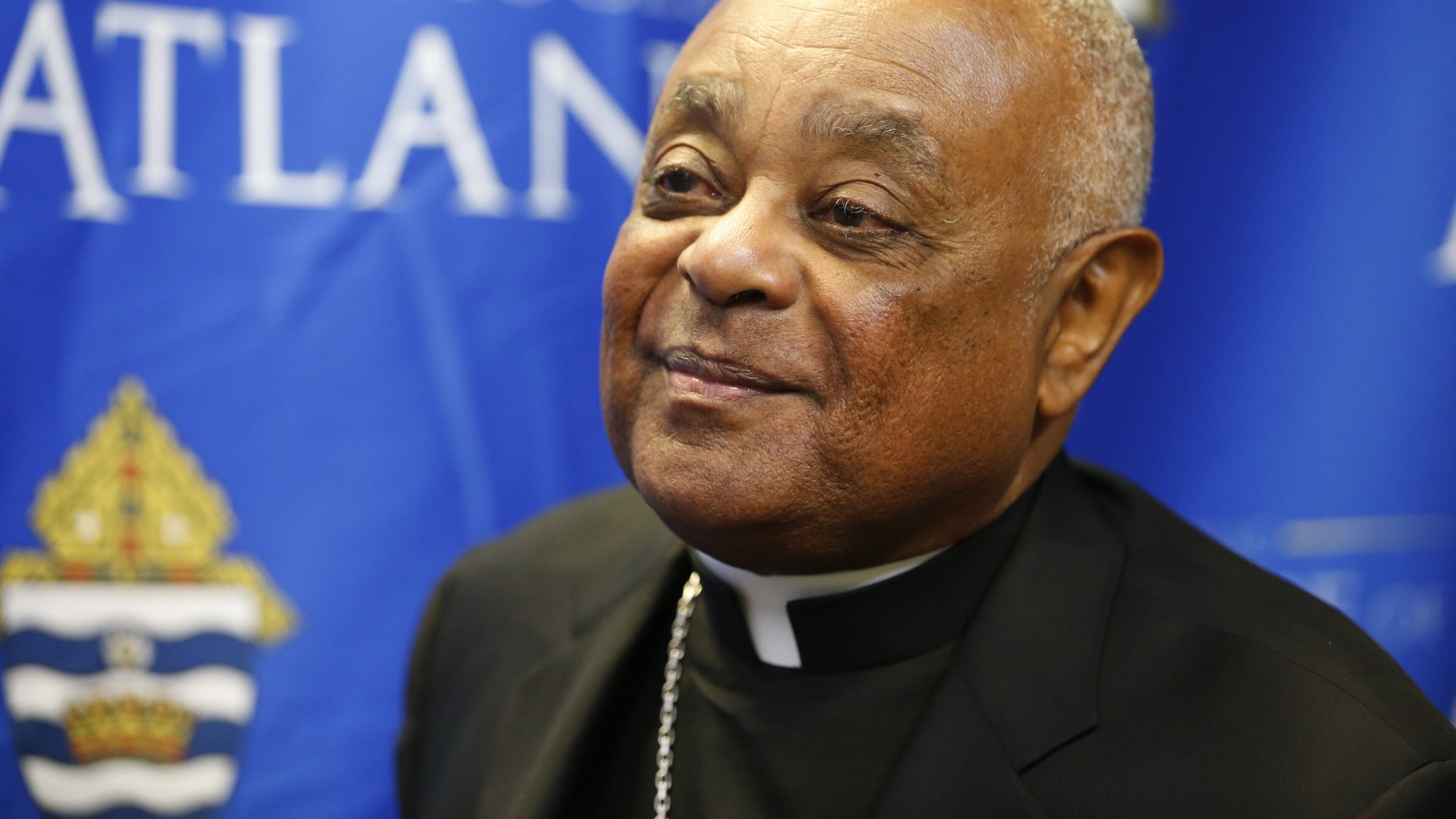Report says Atlanta archbishop considered for Washington job

Atlanta Archbishop Wilton D. Gregory could be headed to Washington, according to the Catholic News Agency.
The CNA, citing several unnamed sources, reported that the Vatican could appoint Gregory, 71, archbishop of Washington as early as next week.
The report could not confirmed.
Judy Keane, director of public affairs for the United States Conference of Catholic Bishops in Washington, D.C., said "we have not heard of any appointment being made."
The position was formerly held by Cardinal Donald Wuerl, whose resignation was accepted by Pope Francis last October.
The Archdiocese of Atlanta could not be reached for comment.
The news agency said in its article that potential candidates were going through more stringent than usual vetting because of child sex abuse scandals.
Last year, a Pennsylvania grand jury produced a stunning report that detailed decades of abuse and cover ups of church officials. Some of those priests were under Wuerl’s supervision when he was bishop of Pittsburgh.
For that reason, the report said, Gregory’s appointment could “still be subject to change, even close to the announcement,” if the government of the Catholic Church or Gregory himself was concerned about his ability to address the abuse and misconduct issues that have plagued the Washington archdiocese.
Former Cardinal Theodore McCarrick, the highest-ranking Catholic leader to be defrocked by the Vatican in modern times, was once the archbishop of Washington. The once influential Catholic leader resigned in July after being accused of sexual misconduct.
This is not the first time it’s been rumored that Gregory, who became archbishop in 2005, would leave the Atlanta archdiocese.
A spokeswoman for the Washington archdiocese declined to comment, saying only that “we are awaiting an announcement.”
“If he (Gregory) is being considered it would be a symbolic move because he is somebody who has been on the front lines of addressing clerical sexual abuse,” said Susan B. Reynolds, assistant professor of Catholic Studies at the Candler School of Theology at Emory University.
Gregory was president of the United States Conference of Catholic Bishops in June 2002 when it implemented procedures for addressing sexual abuse of minors by Catholic clergy. The bishops’ “Charter for the Protection of Children and Young People” also includes guidelines for reconciliation, healing, accountability and prevention of future acts of abuse.
Last year, Gregory wrote an open letter to area Catholics, writing that “so many good and generous priests, are rightly angered, confused, and embarrassed by this testimony that the leadership of the church failed to care for our people with compassion and honesty.”
Pope Francis recognizes that Washington is a community that needs healing, Reynolds said. And Gregory “is a groundbreaker in a number of respects.” He’s spoken out on the topics of peace, nonviolence and the role of black Catholics, said Reynolds.
Gregory’s transition to Washington would make sense for several reasons, observers said.
Although the Washington archdiocese is smaller than Atlanta’s — 655,000 Catholics compared to 1.2 million — both have vibrant and diverse members.
The Archdiocese of Washington includes the District of Columbia and the five surrounding Maryland counties of Montgomery, Prince George’s, Calvert, Charles and Saint Mary’s. The Atlanta archdiocese covers 69 north Georgia counties, including Athens and all of metro Atlanta.
Washington, D.C. is home to St. Augustine Catholic Church, which was founded in 1858 and is one of the oldest black Catholic churches in the United States. If speculation holds true, it would be an historic appointment.
A Chicago native, Gregory, former president of the U.S. Conference of Catholic Bishops, like those before him would likely become a cardinal, becoming the first African-American cardinal in the United States.
“There’s a very celebratory side to this if he’s named,” said Sandra Yocum, professor of faith and culture at the University of Dayton. “He has some credibility in his leadership of the sexual abuse charter, she said.
For Pope Francis the move would be viewed as a “follow through from the February meeting (in Rome) that we are taking this seriously. We’re putting people in place who have responded to sexual abuse,” Yocum said. “This is a way to start healing and to try to bring in some kind of reconciling spirit.”

